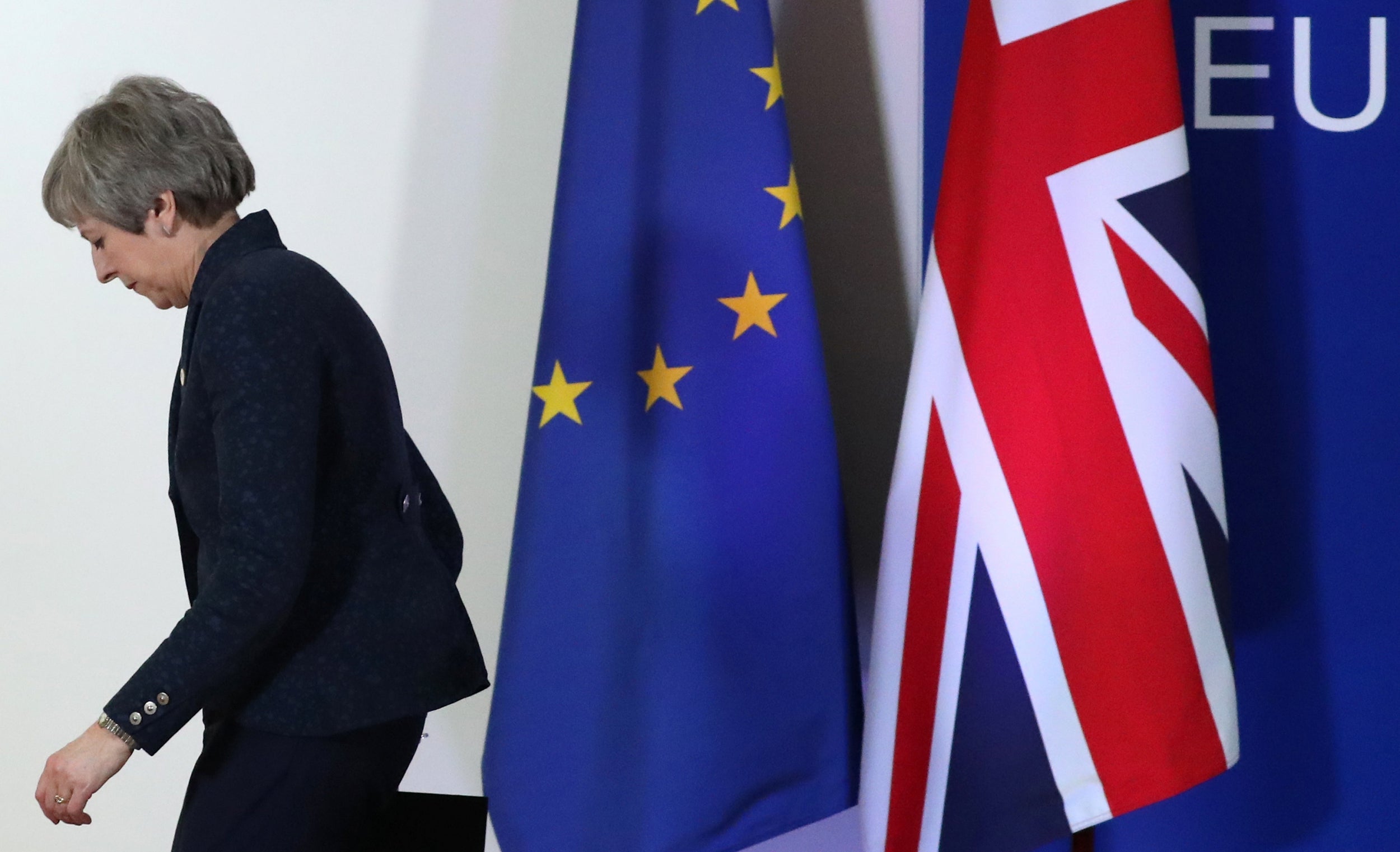Brexit delay deal means ‘anything is possible’ including revoking Article 50, says European Council president Donald Tusk
'The fate of Brexit is in the hands of our British friends. As you know, hope dies last,' Tusk says

Your support helps us to tell the story
From reproductive rights to climate change to Big Tech, The Independent is on the ground when the story is developing. Whether it's investigating the financials of Elon Musk's pro-Trump PAC or producing our latest documentary, 'The A Word', which shines a light on the American women fighting for reproductive rights, we know how important it is to parse out the facts from the messaging.
At such a critical moment in US history, we need reporters on the ground. Your donation allows us to keep sending journalists to speak to both sides of the story.
The Independent is trusted by Americans across the entire political spectrum. And unlike many other quality news outlets, we choose not to lock Americans out of our reporting and analysis with paywalls. We believe quality journalism should be available to everyone, paid for by those who can afford it.
Your support makes all the difference.The agreement to extend Article 50 struck by EU leaders in Brussels on Thursday night means that “anything is possible” – even cancelling Brexit, Donald Tusk has said.
The president of the European Council said the UK would have time to change its strategy or even cancel Brexit, “which is the prerogative of the UK government”.
His comments come after millions of people signed an official parliamentary petition calling for the UK to revoke Article 50 to avoid a no-deal Brexit, and ahead of a major demonstration in central London on Saturday calling for a second referendum.
“It [the deal] means that until 12 April anything is possible: a deal, a long extension, if the UK decided to rethink its strategy or revoke its strategy, or revoking Article 50, which is the prerogative of the UK government,” Mr Tusk told reporters at the end of the European Council meeting.
“The fate of Brexit is in the hands of our British friends. As the EU we are prepared for the worst but hope for the best. As you know, hope dies last.”
He was speaking the morning after a late-night negotiating session where EU leaders thrashed out the future of the UK over dinner.
Leaders agreed that Britain would get an unconditional Brexit delay until 12 April – much earlier than the 30 June date Theresa May had asked for.
But the UK will also get an additional delay until 22 May if MPs approve the withdrawal agreement next week, and the door has been left open for a longer extension if the UK participates in European parliament elections in May.
“The date is chosen so it makes [a long extension] possible for the UK,” one senior EU official said. “The beauty of it is that it keeps those options open.”
The senior official said member states would realistically consider a long extension in three scenarios: if the UK went for a general election, a second referendum, or produced some kind of workable plan to build a majority in the UK parliament for the withdrawal agreement.
Theresa May made her case to EU leaders last night but fled the summit this morning, missing a planned discussion about Europe-China relations despite earlier plans to attend.
Speaking after the meeting concluded, German chancellor Angela Merkel said leaders had “a very candid talk with the prime minister” who has “put a lot of her efforts into defending British interests”.
Jean-Claude Juncker, the European Commission president, put less of a gloss on the conversation, telling reporters: “It was much easier to talk about China than it was to about the United Kingdom.”
EU leaders publicly put the chance of the UK ratifying the withdrawal agreement from about 5 per cent – Emmanuel Macron’s estimate – to 50/50 – a guess favoured by Dutch PM Mark Rutte and his Luxembourg counterpart Xavier Bettel.

One senior EU source familiar with what went on in the room last night painted an unvarnished picture of the meeting: “While the discussion was conducted in civilised and friendly atmosphere, it left the leaders with the impression that chances for an early positive vote in the House of Commons are not very high. Some said 5 per cent, some said 10 per cent, some said... that’s too generous. That also influenced the discussion on the text.”
The source added: “The exchange of Theresa May reinforced the belief that the chance of something constructive coming out of this in one week were not very high and that maybe a couple of more weeks would increase the chances at least a little bit.”
Belgian prime minister Charles Michel told reporters on his way out: “I believe in miracles, but they are not frequent. If the political debate in the UK allows their red lines to change, that would create a different scenario to reach an agreement and bring stability to all.”
The EU sees the objective of the extension as being to “create the conditions in which the UK government can find a solution, but if they don’t find a solution it’s not because of us”, according to a Brussels source familiar with the thinking of member states.
“Many in the room, indeed, find it difficult to believe that suddenly national consensus breaks out in the United Kingdom and in the Conservative Party and on that basis there will be a clear plan. That is not for us to judge: we leave the door open for that and it is for the UK to establish that.”
Join our commenting forum
Join thought-provoking conversations, follow other Independent readers and see their replies
Comments